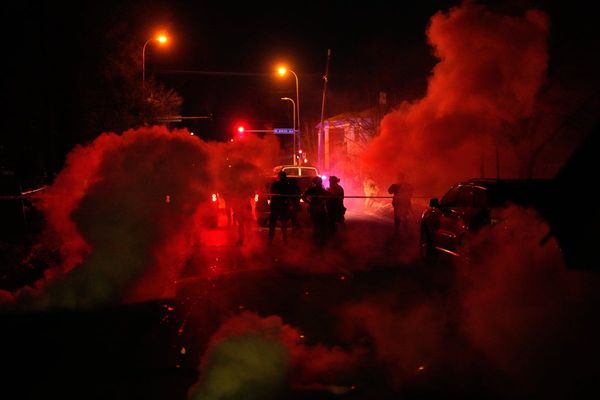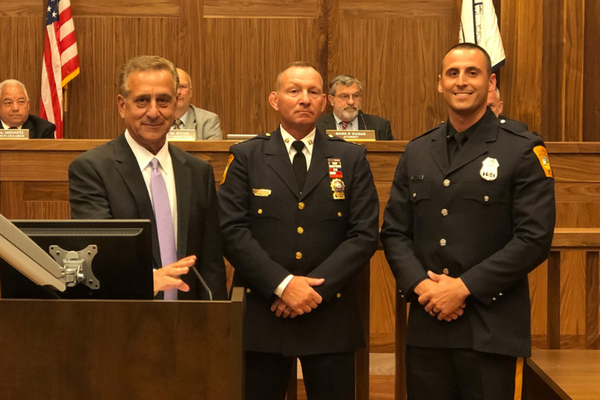
“You don’t call it Opel, you call it Vauxhall,” says Will Still. “A Corsa, little black thing that eventually died. Actually, no, Nico, my younger brother crashed it … it was crap, though, it didn’t even have a radio.” Still, who grew up in Grez-Doiceau, near Brussels, laughs as he recounts his days driving to work as an unpaid video analyst at Sint-Truiden while living at home with his mother, Jane. “Best time of my life, to be honest. It was like the dream was coming true.”
Twelve years on, the 32-year-old, one of the most intriguing managers in the game, has been tasked with returning Southampton to the Premier League after impressing with Lens. The only other time he lived in England was as a teenager when he spent two years studying at Myerscough College in Lancashire, where his degree included coaching Preston’s under-14s. At the time Still felt like “the little posh Belgian kid” but that period provided a handy lesson in English football-speak.
“I remember getting to college and people were like: ‘Bounce it!’ I haven’t got a clue what that means, mate, sorry. Or ‘man on’. By the end, I was like: ‘God, English football is the place to be.’ We were playing Stockport reserves and people turned up to watch that game – a lot of people. It was like: ‘Why are you coming to watch a bunch of college players playing Stockport reserves?’”
Still spoke English at home and French at school but had to get to grips with Dutch after joining Sint-Truiden’s academy aged 10. He recalls telling his father, Julian, that his teammates did not understand him. “Growing up in Belgium, not many people are ginger and speak English. I’ve always stuck out. Like a sore thumb. I think football’s always helped me integrate and be a part of something. And it just became like the one thing that I was actually quite good at.”
Still, talking in the boardroom at Southampton’s New Forest training base, makes absorbing company as he trawls through his journey, including coaching Hugo Ekitiké at Reims and shadowing Thomas Frank during his pro licence; enrolling meant the Ligue 1 club were no longer fined £22,000 every time he took charge of a game, a viral story that meant his profile exploded. “The world the way it is, people just expect it [success] to happen,” he says, clicking his fingers. “And it’s like: ‘Oh, social media told us that you can do it.’”
There is another myth to dispel. It wasn’t just a case of Still tapping the spacebar of his laptop playing Football Manager and landing in Ligue 1; at 30, he became the youngest manager in Europe’s top five leagues when appointed at Reims, having managed Lierse and then Beerschot in Belgium, taking the reins at the former aged 24. Still’s grounding also led to an easy tag. “They called us laptop managers in France,” he says. Still enjoyed playing the video game – he was trying to win the Belgian second division with Sint-Truiden while working for the club – but it hardly propelled him into frontline management.
He acknowledges, though, that Football Manager had its uses. “When you’re working at clubs in Belgium that have no budget, everyone looks at it [as a data and information tool]. Transfermarkt [football website] … everyone looks at it. Everyone looks at Fifa [video game] ratings. I’d be stupid not to at least look at it because it’s there. But it didn’t form my perspective or make me understand tactics better because, you know what Football Manager is like, you can play any system in the world and tweak it slightly and win the Champions League with Rochdale. I’m just a normal person. If I go on my summer holidays, I’ll sit down and probably play Football Manager.”
Still will not have the luxury of saving the game in advance of kick-off in case things go wrong against Wrexham, a team energised after three promotions on the spin, on Saturday. “Exactly,” he says. “We need to get back to the Premier League. We want to do it this year. I’ve been told if it’s not this year, then it probably has to be next year. But I want to be competitive, I want to be challenging myself, people around me … I was looking at footage last week of when Poch was here,” he says, puffing his cheeks and recalling Mauricio Pochettino’s spell, “and that was a seriously good Southampton team. And there is potential to do that again, to build something not just this year but over the next two or three years.”
What led Still to relive that period under Pochettino? “[To see] what Saints fans want to see, what got them excited, what style of football, what brand of player as well.” He bumped into Pochettino in Girona during pre-season when Southampton played Espanyol, another of the Argentinian’s former clubs. Pochettino, now the US national team manager, wished Still good luck and the pair discussed Damion Downs, the US striker Southampton signed from Cologne this summer. Pochettino was in the opposing dugout when Still took charge of his first top-flight game, a 0-0 draw against PSG with Reims. “They were playing Mbappé, Messi, Neymar – all that lot – and you think: ‘I hope they stay calm for this one.’”
There was an emotional pull to return to England. Last year his partner, the Sky Sports broadcaster Emma Saunders, was seriously ill, first with thyroid cancer then encephalitis. “I was going to games and travelling back and forth and thinking: ‘I shouldn’t be standing on this training pitch. I don’t even know why I’m here.’ I needed to be closer to home and, ultimately, Emma is home. I just tried to do my best and, honestly, finishing eighth in Ligue 1 last season, having sold all the players we did, was one of my proudest achievements and doing it with my brothers was pretty special.” It was a rewarding but draining season. “I won’t miss the Eurostar, as good as their service is.”
Still asked Ed and Nicolas, his older and younger brothers respectively, to follow him to Southampton but personal reasons meant the timing was tricky. He sounded out Marshall Munetsi, the Wolves midfielder with whom he worked at Reims, to get his take on St Mary’s. Still has coached several Premier League stars including Abdukodir Khusanov and Kevin Danso at Lens, but none more high profile than Ekitiké, Liverpool’s £79m summer signing. “I think going to PSG [in 2022-23] actually helped him massively … because he was a star in Reims, but he wasn’t a star in PSG. And he grew up, he was a boy and turned into a teenager and then turned into a sort of young adult. He’s so sharp; he sees the goal when no one else sees it.”
For all parties, it is a fresh start but Still acknowledges there is unlikely to be much letup in a division famous for its punishing schedule. So, how does he switch off? “This is the one thing that the French never understood: watching cricket,” he says, smiling. Still bowled for Belgium’s under-16s, for whom Ed also played – “I mean, we were all expats” – and, detailing summer trips to Lord’s and Trent Bridge, tells how the sport takes him to a different place.
“We played Gillingham and Valenciennes [in pre-season] and on the Sunday we had a day off and it was like: ‘Em, shall we go and watch some village cricket?’ So we packed some food, sat on a bench and watched village cricket, up in St Albans. It was crap … but that’s one thing I’ve discovered does actually stop the brain thinking too much. I love cricket, even watching it on TV. But cricket only goes on until about September, so then I’m struggling a bit.”







